Last year was only the start
2023 was the hottest year on this planet, on land, air and in the oceans, marked by floods, drought and extreme weather events.
This year already shows signs of being worse.
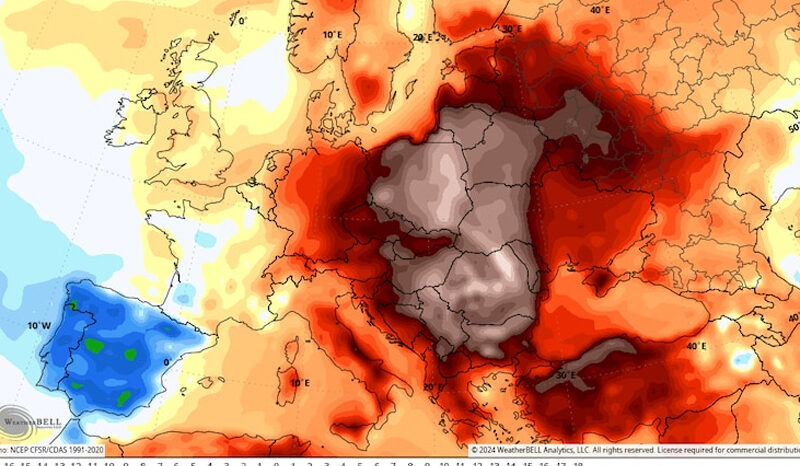
March ushers in 10th month of record heat
“Weekend temps from 20 to 35 ”
It felt more like summer than early spring in Eastern Europe over the weekend, with temperatures soaring into the 70s and 80s, about 20 to 35 degrees above normal.
- Albania: 85.3 degrees (29.6 Celsius) in Kuçovë.
- Belarus: 81 degrees (27.2 C) in Lelchitsy.
- Croatia: 84.2 degrees (29 C) in Osijek.
- Estonia: 70.3 degrees (21.3 C) in Valga.
- Latvia: 73 degrees (22.8 C) in Skulte.
- Lithuania: 77.9 degrees (25.5 C) in Druskininkai.
- Moldova: 84.9 degrees (29.7 C) in Sîngerei.
- Poland: 79.5 degree (26.4 C) in Tarlów.
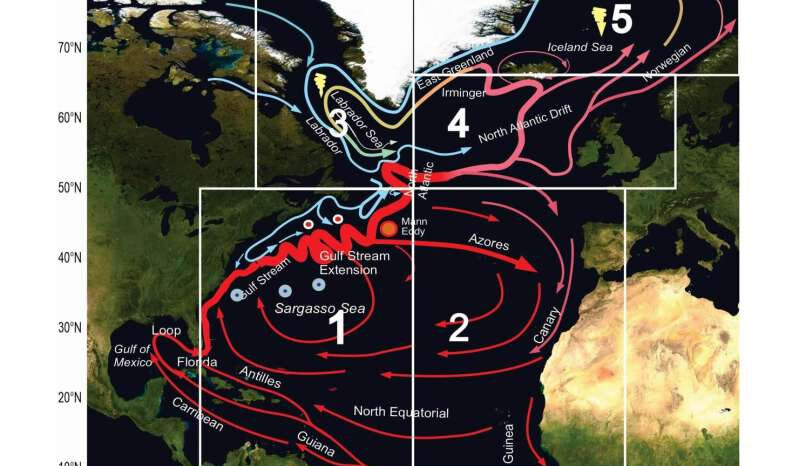
Atlantic Ocean current slow down confirmed again
Heating oceans threaten AMOC, which is bad
A new study led by the University of Maryland concludes that a significant slowing of the crucial ocean current system that helps regulate climate is indeed slowing
The paper led by Earth System Science Interdisciplinary Center (ESSIC) scientist Alexey Mishonov found that the current system’s flow remained stable and consistent from 1955 to 1994. However, in the mid-1990s, AMOC strength began to decline and the current began to move more slowly. The change is attribute to the accelerating warming of the ocean’s surface and the disruption to the salinity of its upper layers.

Climate crisis drives insane cocoa prices!
Chocolate is only one of the products impacted by heat.
Cocoa prices are about double their previous high and at $10,000 per ton, are more valuable than some precious metals.
Increasing costs stem from a cocoa shortage in west Africa, in particular Ghana and Ivory Coast, where more than half of the world’s cocoa beans are harvested. According to experts, the shortage is explained by interconnected factors including climate-related weather events and exploitation inherent in the cocoa industry. It has come at a time of increased global demand, also contributing to scarcity and subsequent price rises.
Americans are grumbling as food prices have climbed 25% over the past four years, especially affecting beef, sugar, and citrus. fruits.
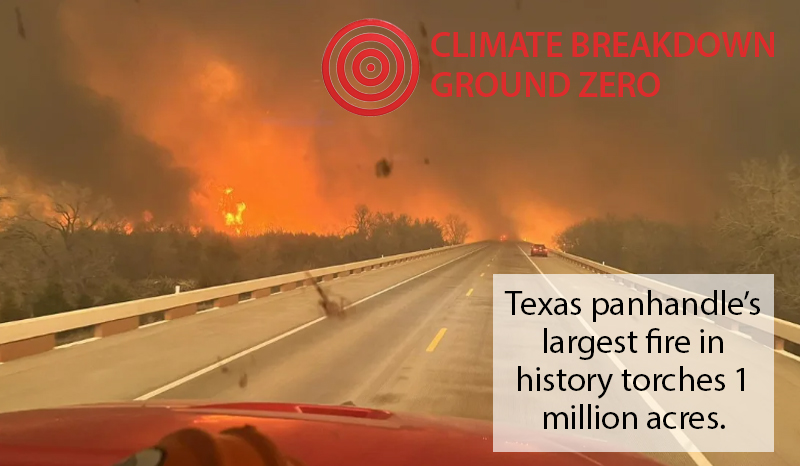
Historic inferno in Texas burns out of control
“I’ve never seen anything like it.”
The monster wildfires torching the Panhandle region have claimed two victims and forced the evacuation of thousands from numerous small towns. Over 1 million acres (2,000 sq. mi) have burned in Texas and Oklahoma, an area about the size of Delaware.
Two deaths have been confirmed, along with thousands of cattle.
The state of Texas is also challenged by the rapid depletion of the crucial Ogallala Aquifer.
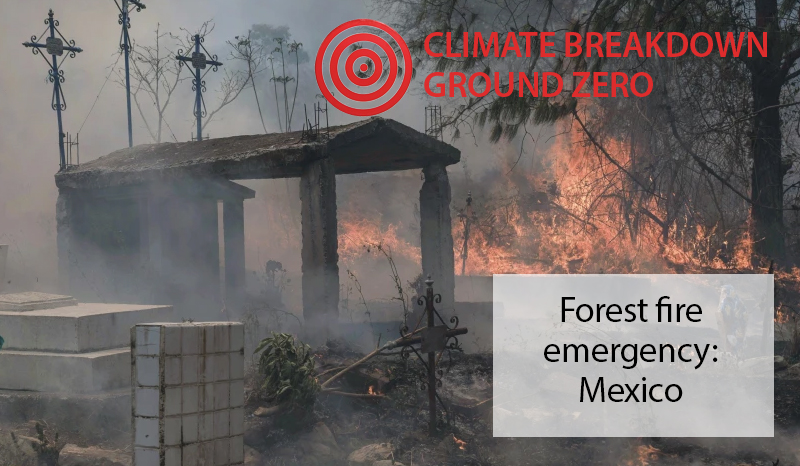
Half of Mexico’s forests are on fire
Over 3,500 acres burn
Forest fires were burning in nearly half of Mexico’s drought-stricken states Monday fueled by strong winds.
The National Forestry Commission reported 58 active fires in 15 states, including in protected nature reserves in Morelos, Veracruz and Mexico states.
A preliminary estimate of the affected area reached more than 3,500 acres (1,421 hectares).
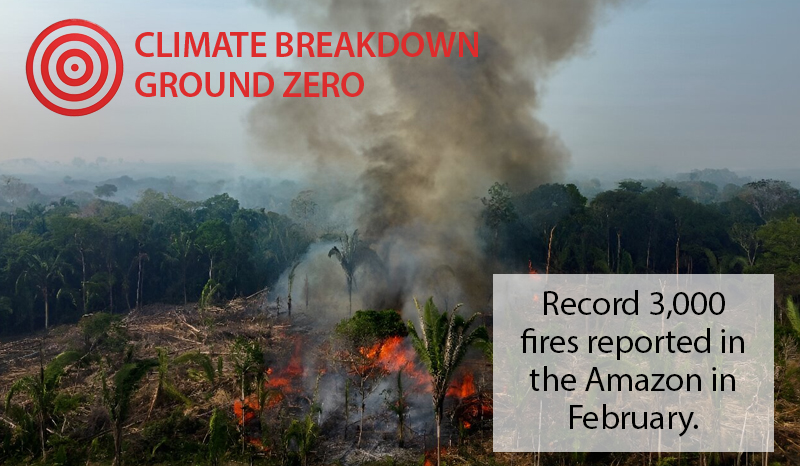
3,000 February fires in the Amazon are very bad news!
67% more than previous record.
Things are not really improving in the Brazilian Amazon region, as 3,000 forest fires were reported in February, a new record. The number is a stunning 67% increase over the previous high and four times more than the same period in 2023.
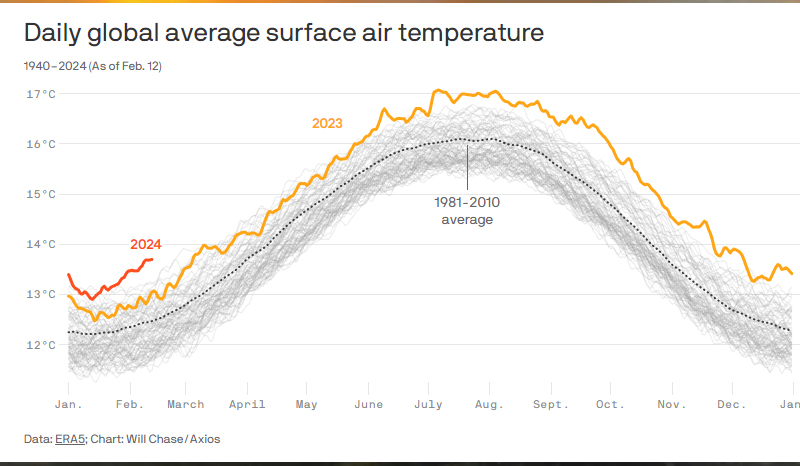
Atlantic Ocean is very very warm for any time of year.
“July-like” temps measured as alarming trend continues
The ocean continues to set new records for extended high temperatures as the coming Hurricane Season could be the worst ever.
In the regions of the North Atlantic where most hurricanes form, temperatures have climbed to near levels typically seen during July.
The water is where cyclones derive their energy.
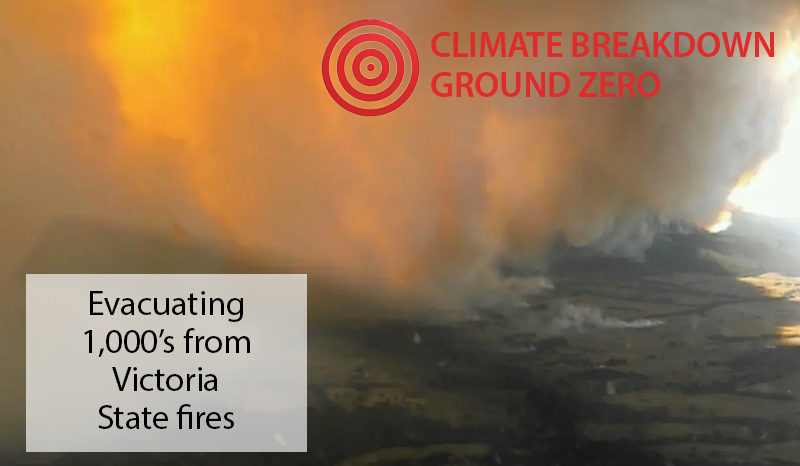
Australia: climate apocalypse redux as fires return to Victoria.
Drought / Fire / Flood | Drought / Fire / Flood
It’s 102°F in Sydney and Perth has just recorded 23 consecutive days hotter than 104°F, breaking another record. Meanwhile in the south, a massive new bush-filre onslaught is driving evacuations from towns in the state of Victoria.
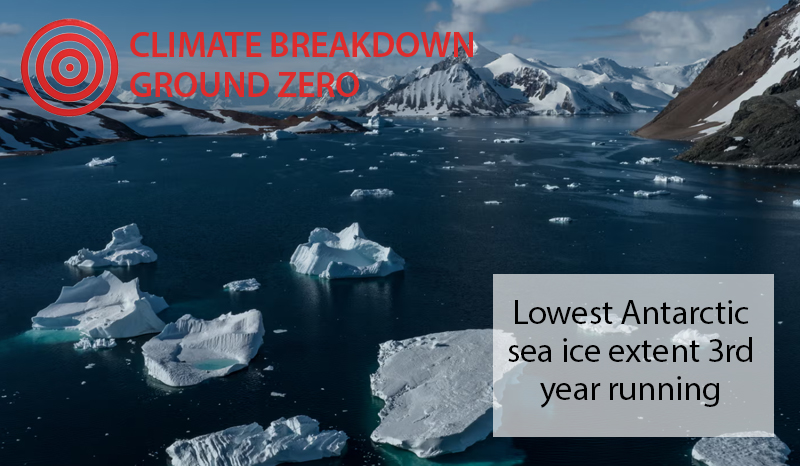
Antarctic sea ice hits record lows for third year running
“An abrupt critical transition.”
The extent of ice around Antarctica is less than 772204 sq. mi. as February ends, the third consecutive year of record low range. Scientists are calling the trend an abrupt critical transition.
The latest data from the US National Snow and Ice Data Center indicates a third consecutive year of record low southern sea ice. Measurement for low extent takes place at the end of the Southern Hemisphere summer.
As sea ice disappears, less solar radiation is reflected, warming ocean waters more quickly, and melting more ice on land as well.
Etc.
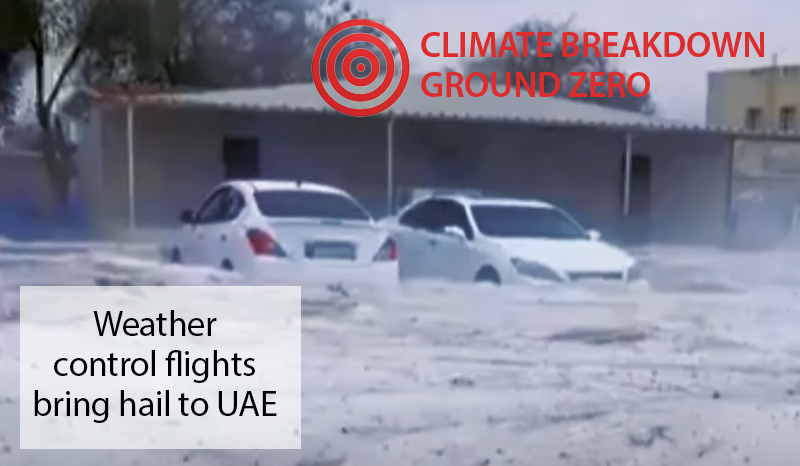
UAE climate control: what could go wrong?
Cloud seeding produces unexpected outcomes
Although details are hard to confirm, we do know that the United Arab Emirates deployed cloud seeing planes in mid-February, the results being a violent storm accompanied by heavy hail. Watch for more reports of individual governments and organizations conducting weather control experiments. .
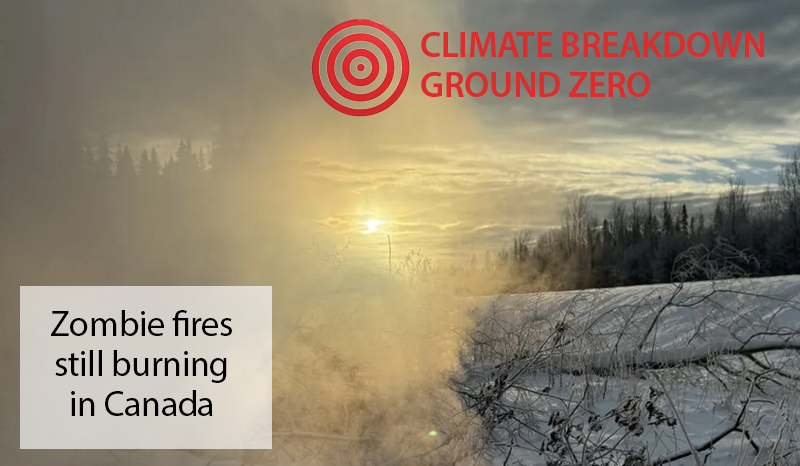
Canadian Zombie fires still burning from last year in Canada
“A snow storm that smells like smoke?”
Even in the dead of Canada’s winter, the embers of last year’s record-setting wildfire season remain. So-called “zombie fires” are burning under thick layers of snow at an unprecedented rate, raising fears about what the coming summer may bring.
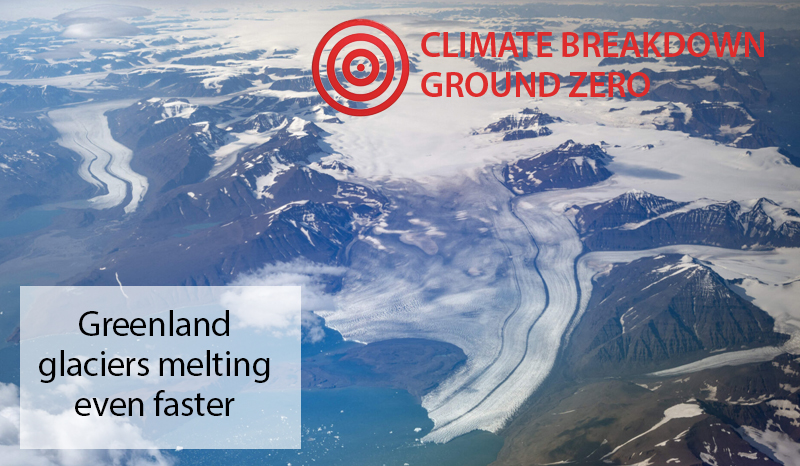
Ice shelf collapse is speeding up as Greenland is really becoming green
NASA Jet Propulsion Lab study shows coastal ice shelf melting 20% than believed
Increasing areas of Greenland are producing vegetation, wetlands and bare rock where ice sheets used to be. The latest bad news means more greenhouse gases and an acceleration of sea level rise and land instability. The new data shows an extra trillion tons of melt (give or take) over the past few decades.
Permafrost thaw throughout the Arctic is causing a series of unexpected outcomes, some dramatic. More here.
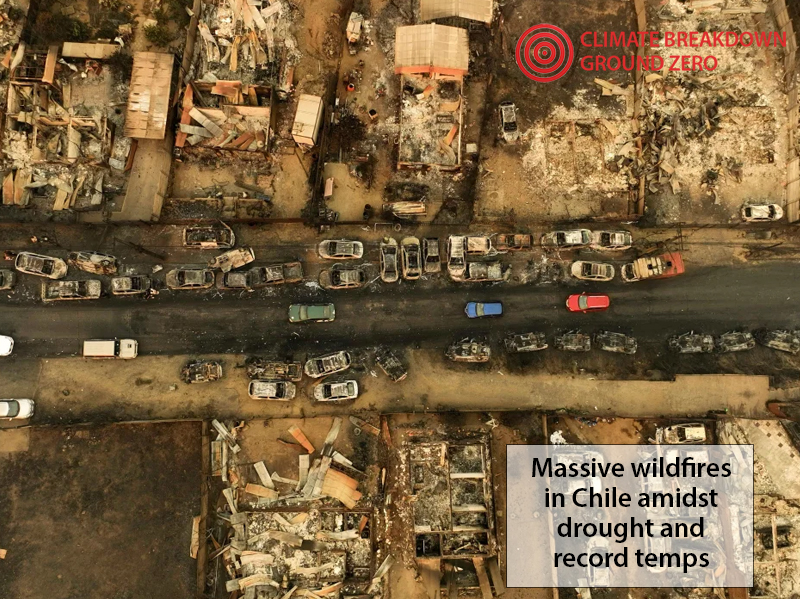
Chilean cities evacuated ahead of wildfires
Death toll in the hundreds is predicted
February will begin with two days of national mourning in Chile as wildfire smoke blankets coastal cities and thousands leave their homes under a state of emergency declaration.
The outbreak has consumed about 200 sq. miles in an area north of the capital and is said to be the largest ever as the pattern of drought and record temperatures in the regions continues.
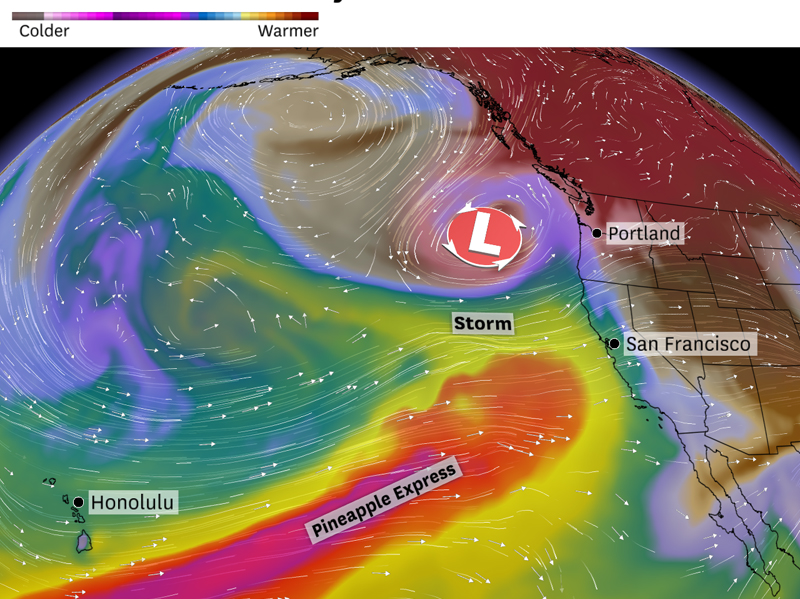
Back to back atmospheric rivers slam California
First ever hurricane wind warning for San Francisco
A second atmospheric river-fueled storm is once again smashing the California coast , threatening more near apocalyptic flooding.
Non-stop torrential rains are expected over a 48-hour period, hitting areas already water-logged on the central coast, the Los Angeles basin and in the mountain ranges.
Heavy snow and strong winds are creating lethal travel conditions in the mountains and high surf on the coast.
The National Weather Service issued its first ever warning of hurricane force winds for the San Francisco area in northern California.
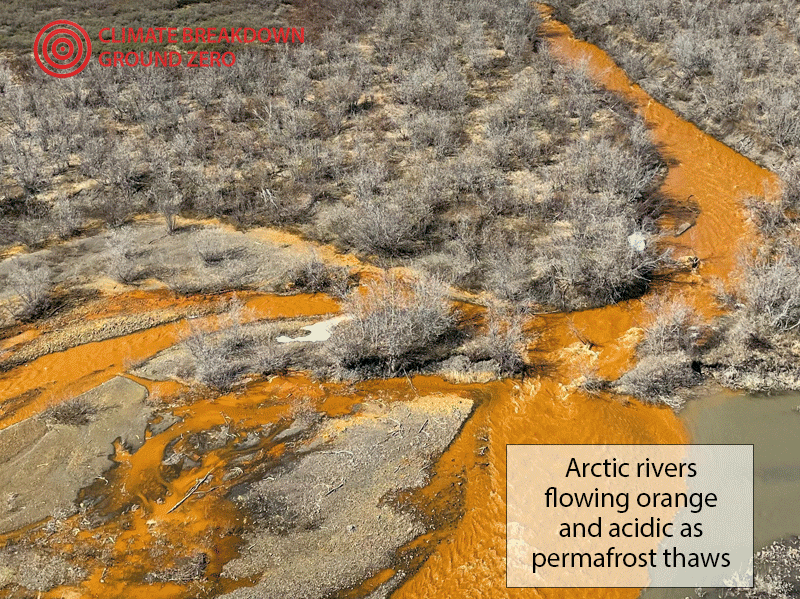
Alaskan rivers flowing orange and acidic
The unexpected consequences of rapid permafrost thaw